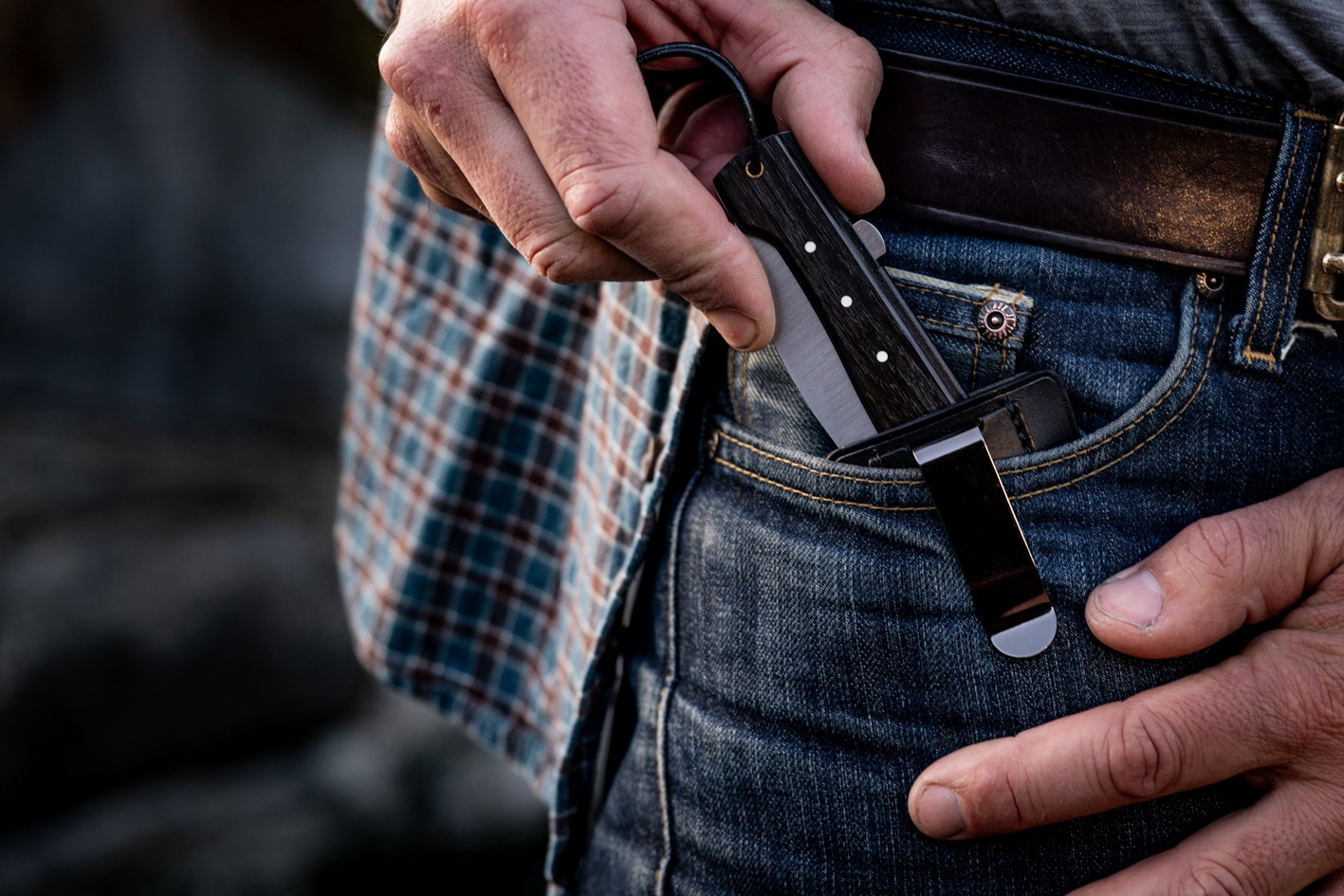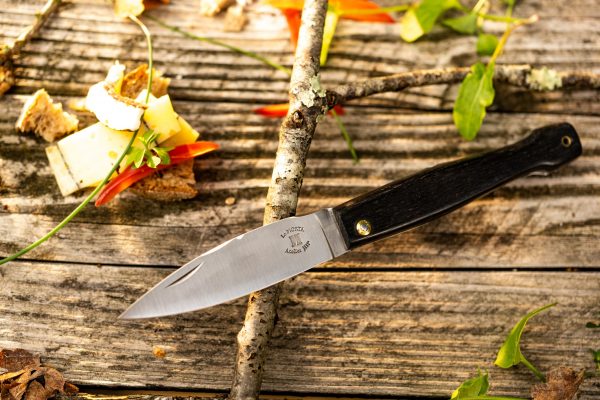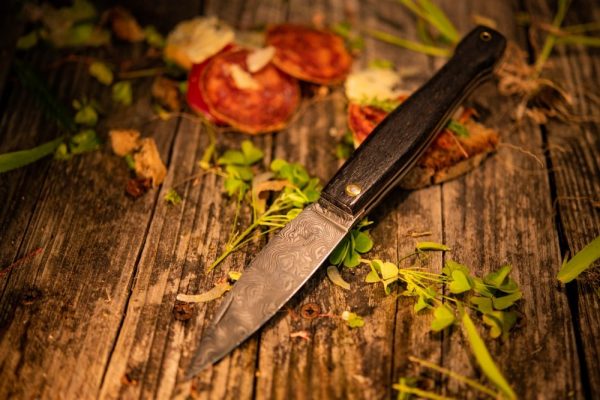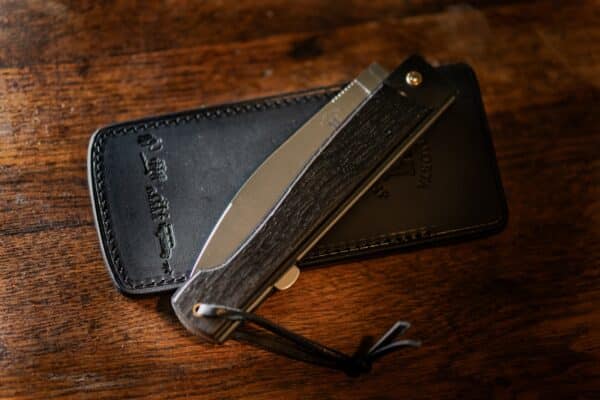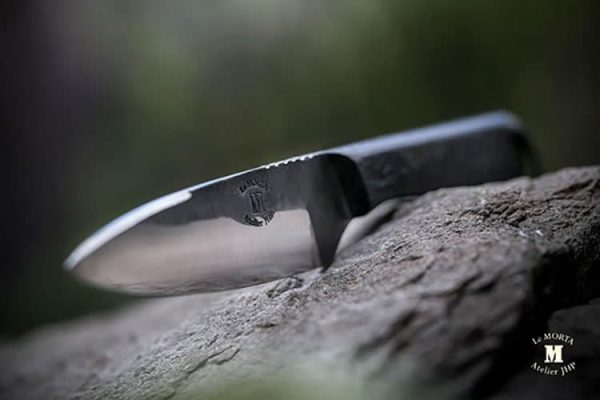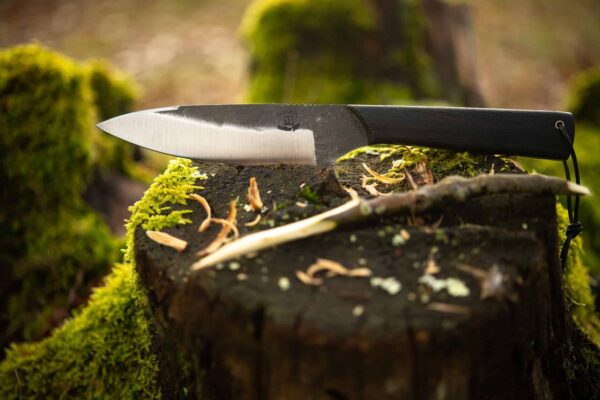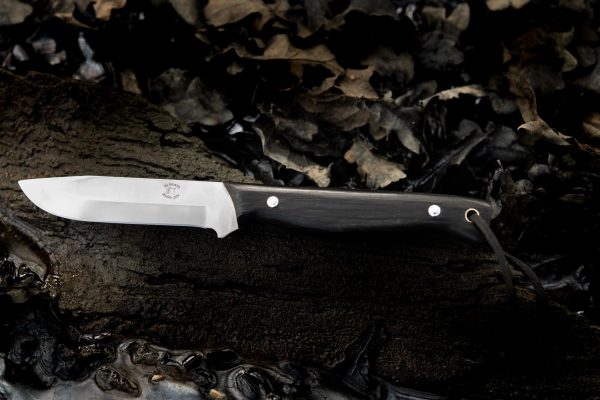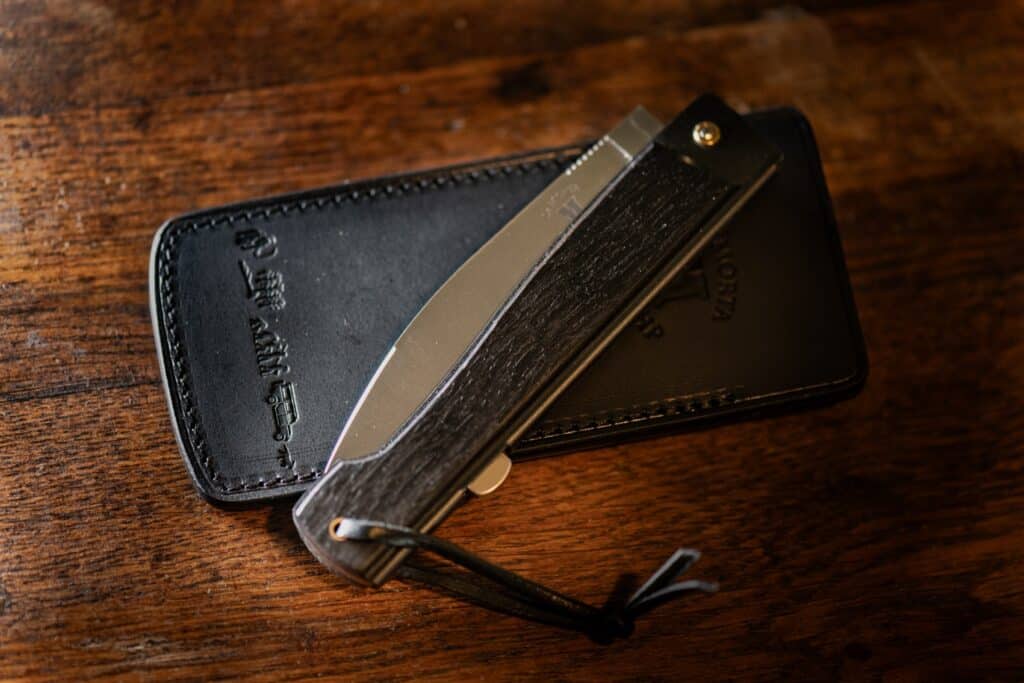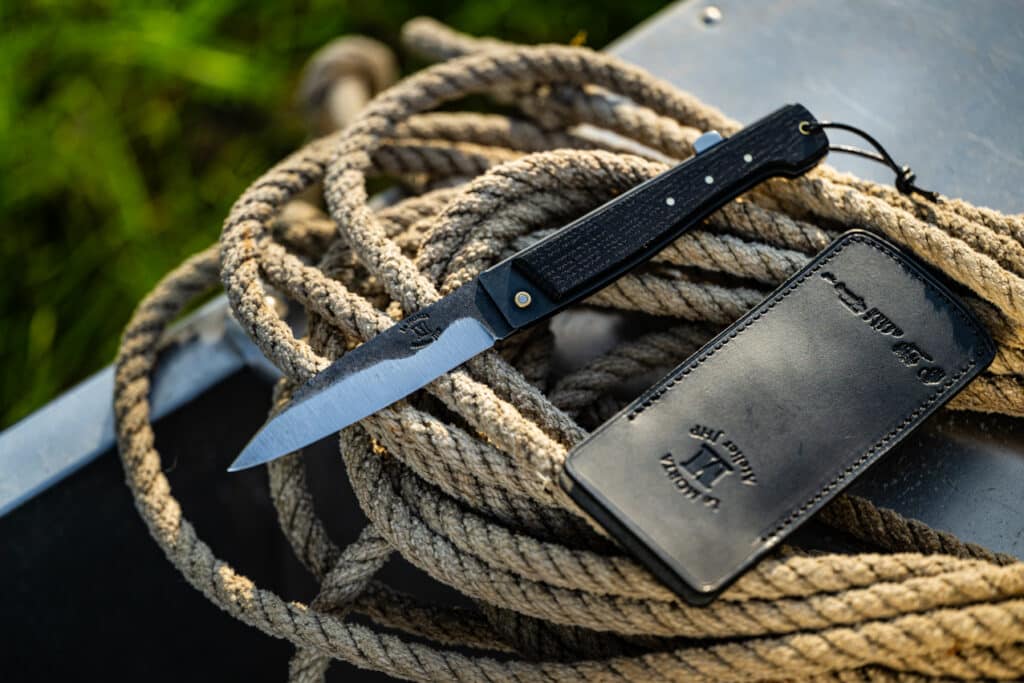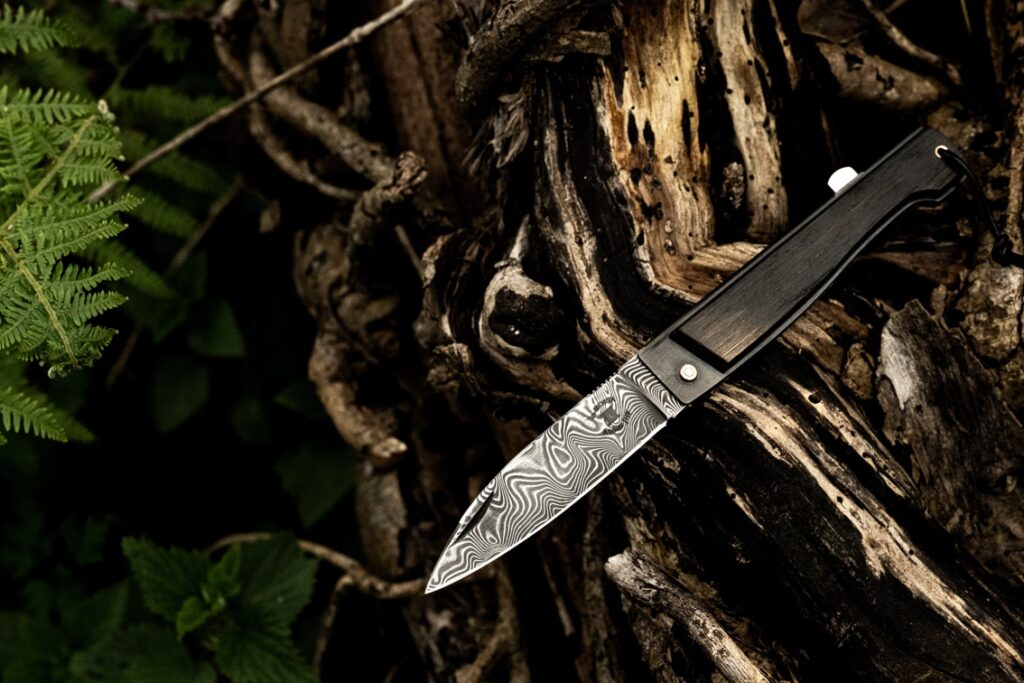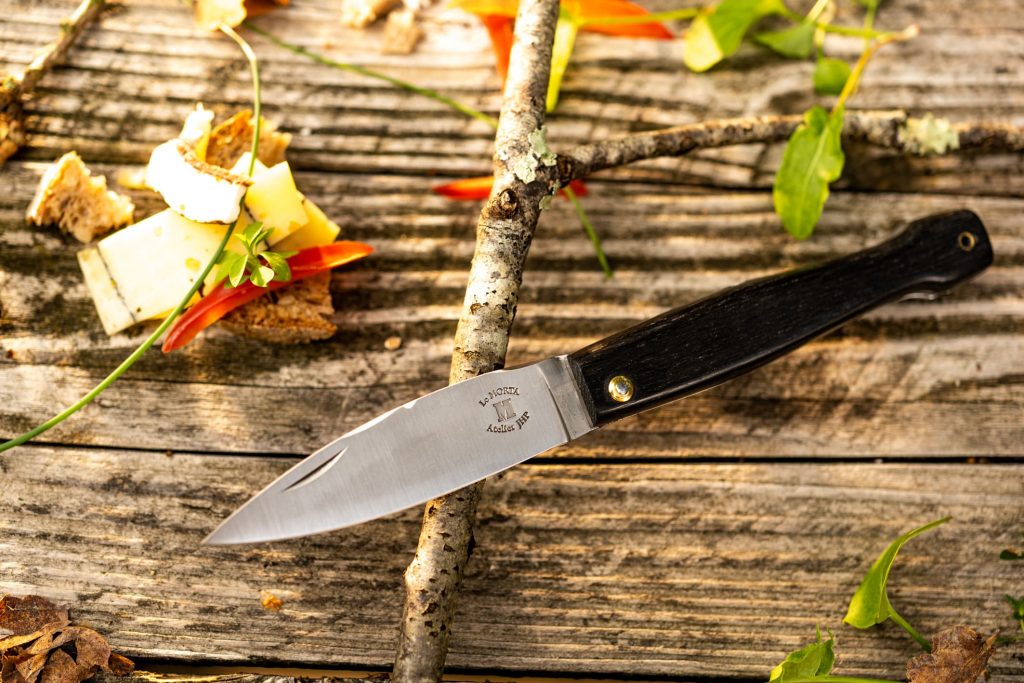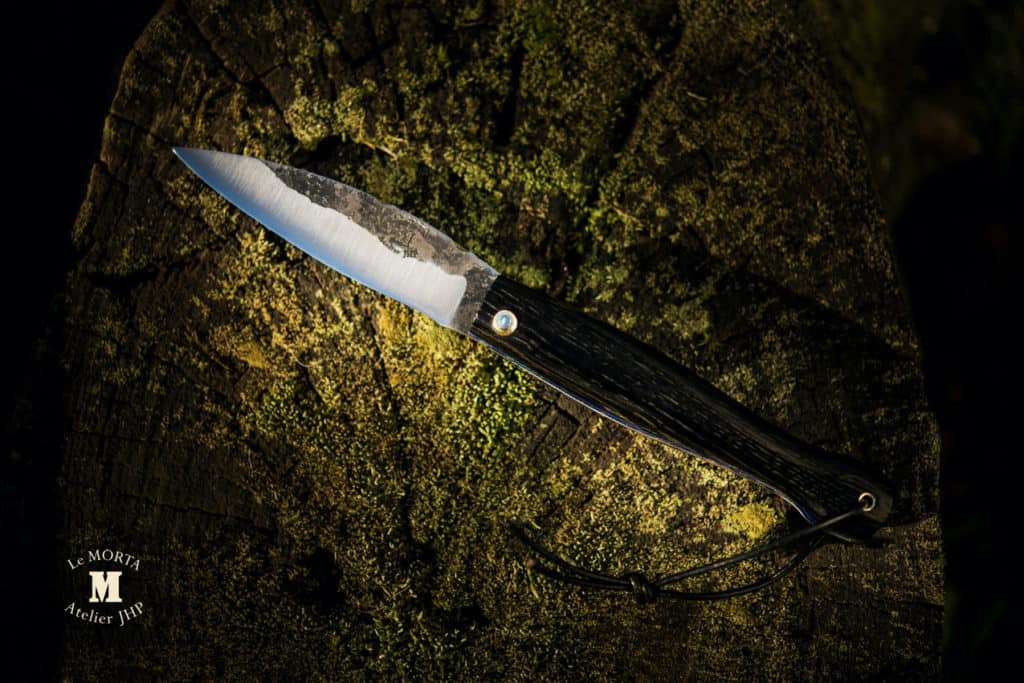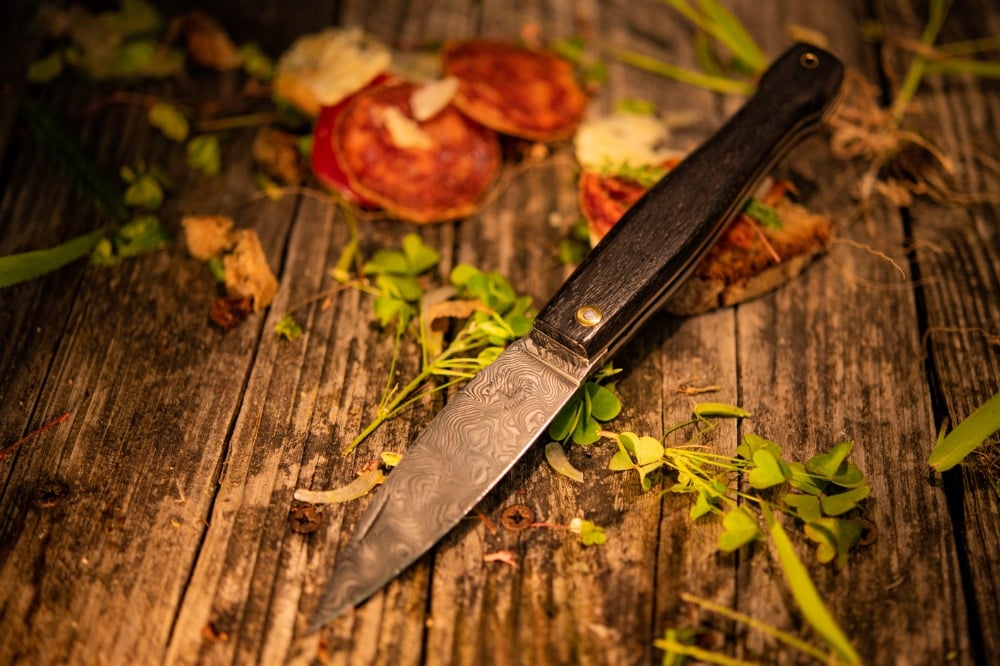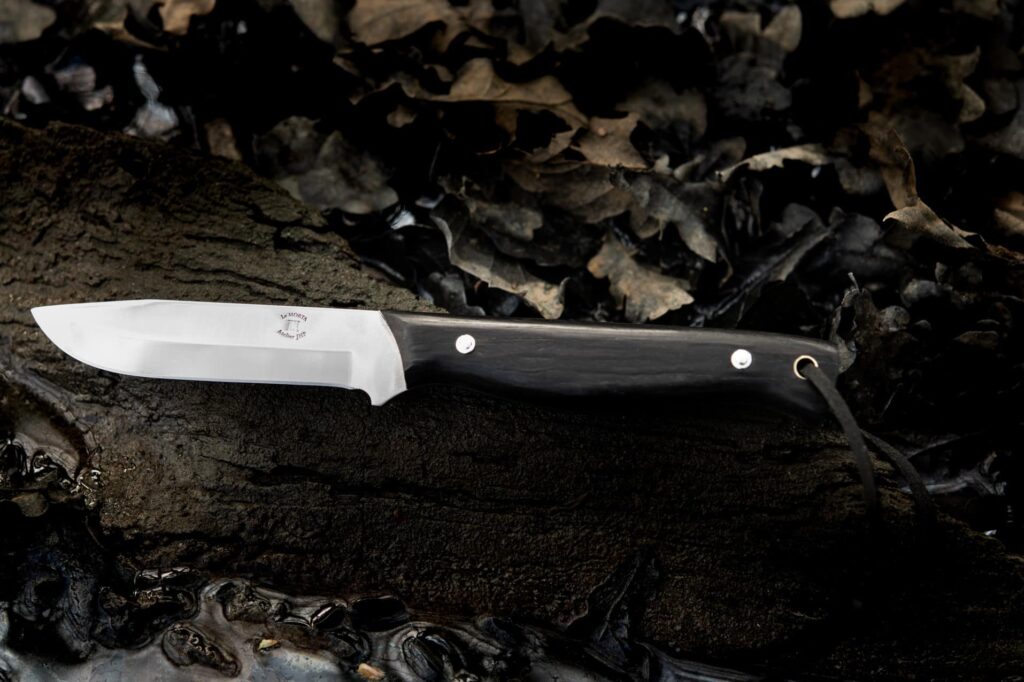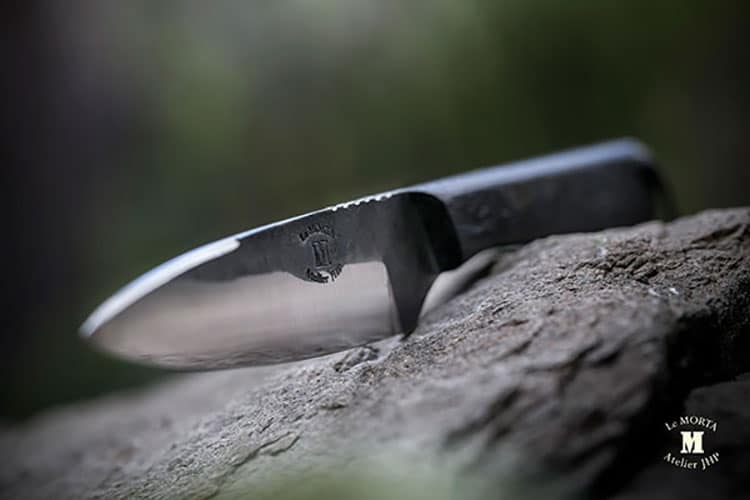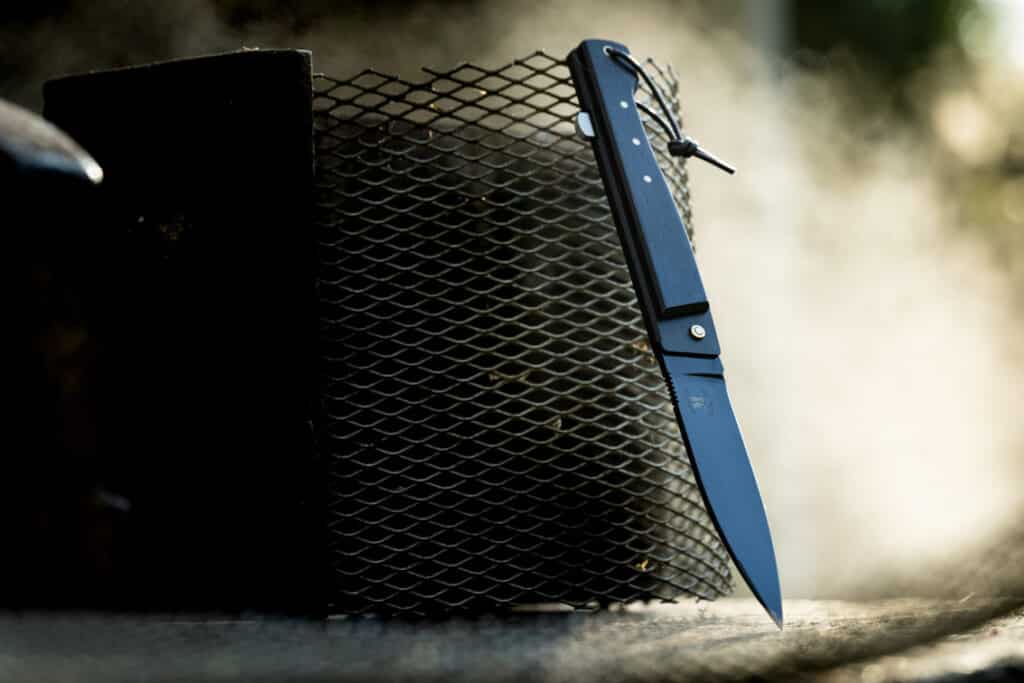The North Carolina tradition of knife carrying runs as deep as the state’s mountain roots. Here, your knife isn’t just a tool, it’s a symbol of self-reliance, craftsmanship, and heritage. Yet modern knife laws create boundaries around this cultural practice, defining when you can openly carry your blade and when keeping it concealed might cross legal lines. The pocket knife in your jeans, the bowie knife on your hip, or the folding knife clipped to your pocket, each has a distinct legal status under North Carolina knife laws. For outdoor enthusiasts and everyday carriers alike, understanding the difference between legal exercise of your rights and unlawful possession matters tremendously.
📌 Key Takeaways
- Open carry is generally legal: North Carolina allows open carry of knives in public spaces. You can openly carry knives on your belt or in a visible sheath, regardless of size or type (except ballistic knives).
- Concealed carry is restricted: North Carolina statute § 14-269 prohibits willfully and intentionally carrying concealed “any bowie knife, dirk, dagger, razor, or other deadly weapon of like kind.” Intent and weapon type determine legality.
- Ordinary pocket knife exception: An ordinary pocket knife (folding blade less than 4 inches that locks only when fully opened) is exempt from concealed carry restrictions under § 14-269, but NOT on school grounds where all sharp instruments are prohibited.
- Schools are complete exclusion zones: North Carolina statute § 14-269.2 categorically prohibits possession of any bowie knife, switchblade knife, dirk, dagger, or sharp-pointed instrument on educational property, whether openly or concealed. Even ordinary pocket knives are banned on campuses.
- Ballistic knives are banned: Spring-loaded projectile knives and ballistic knives are generally prohibited under § 14-269.6 for civilians. Law enforcement agencies may lawfully possess ballistic knives for evidentiary, educational, or training purposes only.
North carolina knife laws: understanding open carry and concealed rules
Quick legal facts about knife ownership
In North Carolina, knife ownership is relatively liberal. You can legally possess most types of knives without specific restrictions. North Carolina law doesn’t prohibit owning bowie knives, dirks, daggers, or other sharp blades. Even kitchen or survival knives have no special status in your home or collection.
🔪 However, be careful! Spring-loaded projectile knives and ballistic knives are generally prohibited under North Carolina statute § 14-269.6. Possessing, selling, or transporting these weapons is a criminal offense for civilians. Law-enforcement agencies may, however, lawfully possess ballistic knives for evidentiary, educational, or training purposes only.
The main distinction in North Carolina concerns not so much ownership as carrying. As is often the case, it’s less about the object and more about how you use it that raises legal questions.
Open carry vs. concealed carry: understanding the difference
In North Carolina, open carry of knives is generally legal in public spaces. You can proudly display your knife on your belt or in a visible sheath, regardless of its size or type (except for the projectile knives mentioned above).
For concealed carry, it’s a different story… Statute § 14-269 is very clear: it is unlawful for any person “willfully and intentionally to carry concealed about his person any bowie knife, dirk, dagger, razor, or other deadly weapon of like kind.” The law doesn’t provide precise definitions of these specific terms, leaving room for interpretation. Is a bowie knife only one with a guard and a clip point blade? Is a dirk only a traditional Scottish dagger?
🔪 Happy exception: the “ordinary pocket knife” carve-out. North Carolina law defines an ordinary pocket knife as a folding blade less than four inches long that locks only when fully opened (§ 14-269). Such knives are exempt from the general concealed-carry ban when you are off school grounds. Crucially, § 14-269.2 forbids bringing any sharp-pointed or sharp-edged instrument, including an ordinary pocket knife, onto educational property, whether concealed or not.
This is good news for fans of traditional folding knives, but beware of switchblades and other assisted-opening models that might fall outside this exception.
-

Solid Morta
140,00 € This product has multiple variants. The options may be chosen on the product page -

Solid Morta Damascus
425,00 € This product has multiple variants. The options may be chosen on the product page -

Morta knife lock back
160,00 € This product has multiple variants. The options may be chosen on the product page
Specific restrictions: Where you cannot carry your knife?
Schools and campuses: complete exclusion zones
North Carolina, like many American states, is particularly strict about weapons on school grounds. Statute § 14-269.2 categorically prohibits possession of any “bowie knife, switchblade knife, dirk, dagger, or any sharp-pointed or edged instrument” on educational property, whether openly or concealed.
This prohibition extends from elementary schools to universities and trade schools. And don’t think you can hide behind the “ordinary pocket knife” exception : on campus, even your faithful companion is persona non grata.
If you’re a parent, be aware that encouraging or helping a minor possess such a tool on educational property is also punishable. Knives may not be possessed on educational grounds under any circumstances, and the law doesn’t joke about the safety of young people!
Government buildings and courthouses: Leave your blade at home
According to § 14-269.4, it’s equally illegal to carry a deadly weapon, concealed or not, in the State Capitol, the Executive Mansion, the Western Residence of the Governor, or in any building housing a court of justice.
For courthouses, this restriction applies only to the portion of the building used for court purposes, if the building houses other services. But is this really the kind of subtlety you want to test? 😉
Parades and public gatherings: knives and crowds don’t mix well
Another special case to know: certain class of knives may not be possessed by spectators or participants in any parade, funeral procession, picket line, or demonstration, whether at a private healthcare facility or on public property. In other words, leave your knife at home if you plan to attend a public gathering.
North Carolina values individual freedom, but not at the expense of collective safety. These restrictions demonstrate a sought-after balance between these two fundamental values.
Penalties for violations: When freedom comes at a high price
Classification of offenses and potential penalties
A violation of § 14-269 that involves carrying a proscribed knife concealed is charged as a Class 2 misdemeanor.
The court may sentence you to up to 60 days in jail and impose a discretionary fine.

Not exactly the souvenir you’d want to bring back from your North Carolina vacation, is it? 🤔
Violations regarding specific locations (schools, courthouses, etc.) are generally considered Class 1 misdemeanors, with more severe sanctions: fines at the judge’s discretion and up to 120 days imprisonment for first-time offenders.
Confiscation: saying goodbye to your precious knife
Another painful consequence for knife enthusiasts: according to § 14-269.1, the weapon will be “confiscated and disposed of upon conviction.” The presiding judge has several options for disposing of your knife, but none include returning it to you.
Imagine your beautiful artisanal knife, perhaps even a model with a special handle, destined to be destroyed or auctioned off by the state… Reason enough to think twice before carrying it around!
Impact on other rights
A conviction for illegal to carry a concealed knife can also have repercussions on other aspects of your life. Under § 14-415.12, only convictions for certain ‘weapons of violence’ offenses, such as §§ 14-269.2, -269.3, -269.4, or -269.6, trigger a three-year bar on obtaining a concealed-handgun permit; a first-time concealed-knife misdemeanor under § 14-269 by itself does not.
These cascading consequences remind us how important it is to know and respect local laws, even for everyday objects like our knives.
Special cases: minors and knives
Sales and transfer to minors
North Carolina takes the protection of minors very seriously, as evidenced by § 14-315, which expressly prohibits selling or furnishing a “bowie knife” or “dirk” to a minor. This provision aims to limit young people’s access to potentially dangerous knife types.
Note that this restriction doesn’t apply to all knives. Ordinary pocket knives, for example, aren’t mentioned in this prohibition. A young scout can therefore legally receive their first folding knife to learn the basics of bushcraft.
Carrying a knife as a minor
North Carolina law doesn’t contain specific provisions regarding minors carrying knives, outside the school context already mentioned. They are therefore subject to the same rules as adults: open carry generally allowed, concealed carry of certain knife types prohibited.
However, it’s important to remember that parents or legal guardians may be held responsible for their minor children’s actions. Education and supervision remain essential when entrusting a blade to a young person.
Exceptions and legal defenses: when concealed carry becomes legitimate
On your property: your domain, your rules
North Carolina law clearly states that the prohibition on concealed carry doesn’t apply when “the person is on the person’s own premises.” At home, you’re king: you can carry your bowie knife, dagger, or any blade as you see fit.
This exception underscores respect for the American tradition that considers the home a sanctuary of individual freedom.
Legitimate activities: hunting, fishing, and other recognized uses
Statute § 14-269 also provides a defense for people accused of concealed carry of knives (other than firearms). If you can prove that:
- You were engaged in an activity in which the weapon is legitimately used, or you were going to/coming from such an activity.
- You used the weapon for that purpose.
- You did not attempt to use it as a weapon for any illegal purpose.
Although the law doesn’t specifically define these “legitimate activities,” hunting, fishing, trapping, and farming are generally recognized as such.
A fisherman carrying a fillet knife in their tackle box could therefore invoke this defense if arrested for concealed carry. But beware, this is a defense to present at trial, not immunity from arrest!
Hunting, fishing, bivouac… the fixed knife quickly finds its place.
-

Compact fixed knife as forged
180,00 € This product has multiple variants. The options may be chosen on the product page -

XL fixed knife as forged
240,00 € This product has multiple variants. The options may be chosen on the product page -

Trapper Morta knife
290,00 € This product has multiple variants. The options may be chosen on the product page
What exactly is a “bowie knife”?
One of the most frustrating aspects of North Carolina knife laws is the absence of precise definitions for the terms used. Neither the statutes nor the state’s case law clearly define what constitutes a “bowie knife“, a “dirk,” or a “dagger.”
According to some historical sources, a bowie knife would be characterized by a crossguard and a clip point blade. But is this the definition retained by North Carolina courts? Hard to say with certainty.
This ambiguity can be a source of anxiety for ordinary citizens who simply wish to remain within the bounds of legality. How do you respect a law whose very terms aren’t clearly defined?
Intent vs. appearance: the question of “willfully and intentionally” carrying
The law specifies that concealed carry must be “willfully and intentionally” to be illegal. In State v. C. F. Gilbert (1882), the North Carolina Supreme Court ruled that a man carrying a weapon in his front pocket did not intend to conceal it, but was simply transporting it from one business location to another, and was therefore not guilty.
However, in State v. Dixon (1894), the same court found that the intention that mattered was not that of using the weapon, but rather that of concealing it.
Jurisprudence on this point seems to have evolved over time, adding to the complexity of these laws. One more reason to exercise caution and common sense.
North carolina: a balance between tradition and safety
Ultimately, North Carolina knife laws reflect an effort to balance respect for American traditions of self-defense and individual freedom with modern public safety concerns.
The widely permitted open carry testifies to this attachment to traditional rights, while restrictions on concealed carry and in certain sensitive locations show the desire to preserve collective safety.
Whether you’re a permanent resident or just visiting, understanding these nuances will allow you to enjoy your knife legally in the beautiful state of North Carolina. Because after all, a knife isn’t just a simple tool, it’s a companion that deserves to be treated with respect, both by its owner and by the law.
FAQ
What types of knives are legal to own in North Carolina?
North Carolina law doesn’t prohibit owning most knife types including bowie knives, dirks, daggers, folding knives, hunting knives, or kitchen knives.
The main restrictions concern carrying, not ownership. Ballistic knives and spring-loaded projectile knives are prohibited under § 14-269.6.
Can I carry a concealed knife in North Carolina?
North Carolina statute § 14-269 prohibits carrying concealed “any bowie knife, dirk, dagger, razor, or other deadly weapon of like kind.”
An ordinary pocket knife (folding blade <4 inches, locks only when fully opened) is exempt from this restriction off school grounds.
What is an "ordinary pocket knife" under North Carolina law?
North Carolina § 14-269 defines an ordinary pocket knife as a folding blade less than four inches long that locks only when fully opened.
Such knives are exempt from concealed carry restrictions when you are off school grounds.
Can I openly carry any legal knife in North Carolina?
Yes. Open carry of knives is generally legal in public spaces in North Carolina. You can openly carry knives on your belt or in a visible sheath, regardless of blade length or knife type (except ballistic knives which are prohibited).
Where can't I carry my knife in North Carolina?
North Carolina § 14-269.2 prohibits knives on educational property (schools, universities, trade schools). § 14-269.4 bans knives in the State Capitol, Executive Mansion, Western Residence of the Governor, and courthouses. § 14-277.2 restricts knives at parades, demonstrations, and public gatherings.
What are the penalties for violating North Carolina knife laws?
Carrying a concealed bowie knife, dirk, or dagger violates § 14-269 (Class 2 misdemeanor: up to 60 days jail and discretionary fine).
Violations regarding schools or courthouses are Class 1 misdemeanors (up to 120 days imprisonment and fines). Weapons are confiscated upon conviction under § 14-269.1.
Can minors possess knives in North Carolina?
North Carolina § 14-315 prohibits selling or furnishing a bowie knife or dirk to a minor. Minors are subject to the same carry rules as adults: open carry generally allowed, concealed carry of certain knife types prohibited.
Parents may be held responsible for minors’ actions.
Are there exceptions to concealed carry restrictions?
Yes. North Carolina law provides exceptions when on your own premises, or when engaged in legitimate activities (hunting, fishing, trapping, farming) where the weapon is legitimately used.
This is a defense to present at trial under § 14-269, not immunity from arrest.
What does "willfully and intentionally" mean for concealed carry?
North Carolina statute § 14-269 requires that concealed carry be “willfully and intentionally” to be illegal. In State v. C.F. Gilbert (1882), the court ruled that intent to conceal matters not intent to use the weapon.
Simply transporting a knife doesn’t necessarily constitute willful concealment.
Are switchblade knives and automatic knives legal in North Carolina?
North Carolina law doesn’t specifically define or prohibit switchblade knives or automatic knives in the same way as ballistic knives. However, they may fall under “deadly weapon of like kind” for concealed carry purposes.
Ballistic knives (spring-loaded projectile knives) are explicitly prohibited under § 14-269.6.


